- Home
- Keith Douglass
Enemies c-15 Page 2
Enemies c-15 Read online
Page 2
“My point exactly,” Brett shot back. “So you’re saying the answer is to simply give up in Northern Ireland?”
Mike shook his head again, now clearly irritated at the others obtuseness. “Not at all. But England’s tactics won’t work, not in the long run. You can’t force statehood on a country that doesn’t want it. Even a country where half of the population doesn’t want it.”
“So we just give up?” Brett asked.
Mike nodded. “And that’s the fundamental things that people like you don’t understand. Sometimes there are no answers, at least no answers that work. There are only degrees of bad.”
Frustrated, Brett turned to Pamela. “So whose side are you on?”
Before she could start to frame her answer, the pilot broke in over the ICS. “Looks like we’ve got company, people. If you’re not strapped in, do it now. Sometimes these Greek fighters play rough.”
Pamela was the only one with her seat belt still in place. She learned through hard experience that it always paid to be prepared for turbulence. Mike and the cameraman reached for their belts. Brett ignored the suggestion and continued the argument. “I mean, you’re the one who’s supposed to be the expert, Pamela.” There was something ugly and suggestive in his voice.
Pamela debated whether or not to recognize what he was insinuating, then decided against it. Brett’s ambition was a well-known fact within ACN. To answer what he was implying would simply lower her to his level, and there was no need for that.
She twisted around in her seat until she could see forward to the gap between the pilot and the copilot. The other aircraft was visible now, a Tomcat by the looks of it. The canted vertical stabilizers and swept-wing silhouette were a dead giveaway. After covering so many military conflicts, Pamela could recognize most of the major airframes on sight from any angle.
Must be one of the Greek fighters dispatched on regular intervals to patrol the border. Part of Greece’s solution to Macedonia’s independence had been to close trade routes and crack down on air space violations, in an attempt to cut off the landlocked nation’s international commerce.
Standard border war tactics — or at least what the rest of the world called the border. Greece itself refused to admit that there was any border between Macedonia — or Skopje, as they called it — and Greece.
“Any indications of a radar lock?” she asked the pilot, ignoring the rest of the news team. A deep, sick feeling was starting in her gut. Too many times she’d had to rely on her instincts to survive when reporting combat situations, and she’d come to trust that feeling that told her that something was about to go terribly, terribly wrong.
“How should I know?” the pilot answered. “It’s not like I have a threat receiver in this cockpit. He doesn’t look too friendly, though, does he?”
Pamela shook her head. “No, he doesn’t.” The Tomcat was closing on them at top speed, and Pamela could see the fire gouting out of its tail from the afterburners. How fast was he going? Max speed of the Tomcat was well over Mach two. She squinted, trying to see if the forward edge glove vanes were extended, but couldn’t make out the details. At speeds above Mach one, the glove vanes moved the aerodynamic center of the aircraft forward and reduced the load on the tail.
But surely he wouldn’t conduct a fly-by at those speeds? The wake turbulence of his wake could be deadly to lighter aircraft and helos, and the Tomcat pilot had to know that. It would be pure insanity, dangerous conduct of the most egregious kind, particular when aimed at a neutral party.
But was the press ever really a neutral party these days?
So fast, approaching so fast. She could see the outlines of the canopy now, see the two figures seated inside. “I think we’d better—”
Just as she started to make a suggestion, the helicopter pilot decided on his own that they were in a very unhealthy bit of airspace. He shoved the collective forward and headed for the deck.
The nose of the helicopter pitch down at a hard angle, throwing her forward against her seat belt and harness. Loose gear in the cabin rolled forward, creating a cloud of debris.
The cameraman screamed. “What the hell is—?”
The Tomcat’s wake smack into the light helicopter with the force of the tsunami. The helicopter rolled immediately, and kept rolling, unable to bite into the air with its rotors inverted half the time. Pamela grasped the side of her seat, felt her mouth open to scream as she watched the world spinning through the window to her side, blue sky replaced by a tree canopy, blue sky again, then more trees. The uneasy feeling she’d been experiencing turned into serious nausea. She bit down hard with her back teeth, forcing herself not to vomit.
Brett had other things to worry about. He hadn’t manage to get his seat belt fastened, and the first roll threw him violently against the overhead. He slid down it as the aircraft careened onto its side, and smashed into the other side. Blood streaked the Plexiglas. His mouth was open but his screams were drowned out by the noise of the rotors and the shriek of disintegrating airframe.
The pilot was screaming now too, shouting orders to the copilot as they desperately tried to regain control of the helicopter tumbling through the air.
It wasn’t going to work. In the first few seconds of the roll, Pamela knew that was a certainty.
Is this how it ends? Not with a bullet, not with a missile shot in Cuba, but in a stupid, stupid accident? No, I won’t let it. It’s not going to happen like this.
The helicopter was falling now, the roll dampened out by the downward motion. She felt it wrench hard to the left, counter to the motion of the roll as the pilot applied maximum rudder in an effort to stabilize the airframe. Amazingly, the engines were still screaming, although the sound had a sick, unhealthy undertone to it. Then the engines sputtered, coughed twice, and died.
The silence was deafening. She could hear the wind now as it sought out the cracks and crevices in the once-solid airframe, feel it spinning through the passenger compartment and cockpit. At least they were upright, and she could hear the pilot and copilot frantically trying to restart the engines, trying anything to slow their downward descent.
“Auto rotate,” the pilot screamed. “If we can just get a little bit of power, we can…”
Auto rotate. Not a chance. While at least in theory the ground effect and rotation of the helicopter blades might soften the impact, this helicopter was too far out of control to even consider it as a possibility. At least the roll had stopped as gravity took control. They were nose down, maintaining some forward speed as they plummeted through the night air.
Pamela grasped frantically at straws. They were upright. That gave them a chance, since the helicopter was built to take impact on its undercarriage. There was a chance, at least a chance, that they could survive.
“Into that bare spot,” the copilot shouted, gesturing off to his right. “Not very big, but if we can just clear the treetops, we might make it.”
The helicopter jerked hard to the right as the pilot forced it into a shuddering turn. The front windscreen was gone and wind tornadoed through the cockpit, battering her with loose gear. She could see blood trickling down the side of the pilot’s face. A grim, determined expression was on his face. The noise was unholy, atmosphere shrieking mixed with the screams of metal shattering under forces it was never designed to bear.
“Brace yourselves,” the pilot shouted. Brett lay moaning on the floor of the helicopter, barely conscious. Pamela leaned forward to try to pull him up into his seat, then stopped. Depending on how badly he was hurt, moving him could simply make matters worse. After the battering he’d taken inside the compartment, there was no telling whether or not he could survive the crash at all. Or if any of them could. Better to let him die where he lay rather than torture him by moving him to the illusion of safety in his seat.
The cameraman and Mike were holding on to their armrests, stark white faces gleaming dimly in the moonlight. Had she been given a choice, this was not the company she would’v
e chosen to die with. No, if she had a choice, she would have died with…
Tombstone. For a moment she tasted the name in her mouth, heavy with memory and regret. What they had had, what had mattered then… she would never know now, would she? She had screwed up, screwed up badly, and there would never, ever be a chance to make it right.
The helicopter approached the clearing in the forest, its rate of descent increasing. It passed over the first line of trees, then the front skid caught on the tip of a pine tree. It wasn’t a large tree, but given the helicopter’s instability, the impact was enough to flip it tail over nose in an airborne summersault. Pamela’s last vestige of hope vanished, just as the face she saw in her mind was beginning to seem so real.
Tombstone. Oh, Stony. What have I done? Then the world disintegrated into noise and blackness.
Tavista Air Base, northern Greece
2325 local (GMT –2)
General Arkady slammed his hand down on top of the radar set. The picture wavered, went blank, then reappeared, the contacts slightly offset from their previous locations. Clearly a transmitter alignment problem, one that the operator would have to correct later. But for the moment, in the face of General Arkady’s rage, no one dared move. Not the watch officer in charge of the ground control center, not his supervisor, not the officer of the day, not even General Arkady’s chief of staff, Colonel Zentos.
“I gave an order,” Arkady howled. “A simple, direct order. ‘Conduct a fly-by.’ You all heard that, didn’t you?” He glared at the assembled men and women. A chorus of nods answered him.
“You,” he said, pointing at the officer of the day. “What went wrong?”
The officer of the day tried to stammer out an answer, aware that by selecting him as the scapegoat for the entire incident, General Arkady had just terminated the OOD’s career in the Army, unless he could find a way to reverse the situation. The OOD thought frantically.
Finally, it dawned on him. An old military adage, one as true today as it had been in the days of the Pelleponesian wars. Shit rolls downhill. If ever there were a time when he needed that to work, it was now.
“The pilot,” the OOD began uncertainly. He saw General Arkady’s eyes shift slightly, and felt more confident. “Yes, General, the pilot. He disobeyed your orders. I distinctly heard you give the order, sir. It is clearly the pilot’s fault. An almost treasonous act, I would call it.” By now the OOD’s voice was strong, and he felt the mood of the crowd begin to shift.
It seemed an eternity, but General Arkady’s expression finally thawed slightly. “Yes, of course,” the general said. “Have him return to base immediately. And bring him to me. I will deal with this matter personally.”
Tavista Air Base, northern Greece
2350 local (GMT –2)
The airfield stretched out before him like a giant game of tic-tac-toe. Spiros banked the Tomcat gently, slowly bleeding off air speed and altitude. Touching down on a land-based airfield was child’s play compared to his experiences as an exchange student with the United States Navy. The carrier landings… he shuddered at the memory, the black, clawing sea, the shifting deck and uncertain winds. How they manage to do it every day, every night, he would never know. He still had nightmares about his last night trap.
This, however, was simple — maybe too simple. He made a slight correction in the course, lining up on the runway now. Anyone could do this. For a moment, just a moment, he realized he missed the challenge of trying to wrestle tons of aircraft onto the deck of an aircraft carrier.
The touchdown then, light and gentle. He rolled out smoothly, taking up more runway than he actually needed. He used his nose wheel steering gear to turn the jet toward the flight line. A yellow “follow-me” truck appeared.
After he had completed his post-flight shutdown checklist, Spiros unstrapped from his ejection harness and swung out over the side of the aircraft. His feet sought out the familiar pattern of the boarding ladder, and he jumped lightly to ground. His backseater was still in the aircraft, stuffing charts and kneeboards into his flight suit.
Colonel Zentos was waiting for him, much to his surprise. Spiros snapped off a hasty salute, stammered out a greeting.
“Sir?” Spiro stammered. “Did you want to see me?” Of course he does, you idiot. That business with the helo — it’s your fault, you know. You’ll be lucky if you’re still flying after this. He felt a wave of regret, a rush of sympathy for the helo pilot. He hadn’t intended to swat them out of the air like an insect, but it had happened.
“The general wants to see you,” the colonel said finally. “You will come with me immediately.” He turned and led the way back to his vehicle. The driver had kept the engine running.
“But my aircraft,” Spiros began. “My RIO.”
Without turning back, the colonel said, “You alone. The flight line crew will take care of the aircraft. Come immediately.”
Spiros glanced back at the plane captains who had taken charge of his aircraft. The senior-most nodded reassuringly, giving him a thumbs-up. They probably thought that the general was going to honor him in some way, Spiros thought. None of them knew what had happened.
Spiros managed a jaunty wave, and strode off after the colonel, who was already seated in the back of the vehicle.
General Arkady’s office
Tavista Air Base, northern Greece
0030 local (GMT –2)
“What did I tell you?” the general demanded. “What were you thinking, in the name of all that is holy?”
Spiros stood braced at attention, his hand shaking alongside his legs. This was bad, worse than he’d ever thought possible. The possibility that he might somehow keep his wings had now completely vanished, and Spiros was now wondering whether or not he would be in the army by the time the day was over.
“General, I… it was unintentional, sir,” Spiros finally choked out. “I didn’t mean to get so close.”
“Intentions don’t matter. I hold you responsible for your conduct,” the general said. “About-face, soldier. I cannot stand to look at your stupid, cowlike face.”
Spiros executed a shaky about-face by sheer reflex, and stood at attention with his back to the general. The shaking had spread from his hands down the spine now, and he could feel his leg muscles dancing as though he’d just run ten kilometers. A court-martial, perhaps. Time in military prison, disgrace to his family. Spiros heard a soft, slithering sound behind him. His panicking brain tried to make sense of it. Then cold metal touched the back of his neck, just at the spot where his spine met his skull.
“I do not tolerate excuses,” Arkady said calmly. The general pulled the trigger.
The bullet shattered Spiros’s spinal cord, then tore out most of his neck, severing his head from the body. Before the head had a chance to fall away from the torso, the bullet cracked through his brain, ricocheted off the interior of his skull, and reduced the remaining flesh to bloody pulp. Spiros was dead long before his head bounced on the hardwood floor of the general’s office.
For moment, no one moved. The general held his pose, arm outstretched in front of him, staring down at the decapitated body of the pilot. Finally, he let his arm fall to his side. He replaced the gun in his holster and gazed at the rest of the officers. No words were necessary. They all heard his unspoken comment: Let this be a lesson to all of you.
The general walked back around his desk and took his seat again. He started riffling through the papers centered on the highly polished wood in front of him. Without looking up, he said, “Have someone clean that up.” He reached into his desk drawer, took out a pen, and began signing his name to the papers.
Colonel Zentos was the first to react. He stepped forward, picked up Spiros’s bloody, staring head, and glanced at the officer of the day. “You heard the general.” Zentos placed the head on top of the body. “Get the cleanup crew in here. Now.”
The room exploded into a flurry of activity. No one wanted to be the next target of the general’s t
emper.
TWO
Thursday, 4 May
Chief of Naval Operations
Washington, DC
0900 local (GMT +5)
Vice Admiral Matthew “Tombstone” Magruder stared at the minute hand on the clock on the wall across from him. If he squinted his eyes just a little bit — not that he’d ever admit needing to do so — he could actually see it move. It crept with glacial slowness around the face of the clock. He looked away, hoping to encourage it to go faster. At sea, that sometimes worked during long hours of pulling alert five in the cockpit of his Tomcat. Back then, the seven-day clocks seemed to know when you were looking at them and slowed down.
Tombstone hadn’t spent enough time ashore to be absolutely certain of it, but he’d been under the impression that time passed more quickly here. Certainly, it was easier to get up and move around when you weren’t confined to the flight deck waiting to launch. You could leave the building, you weren’t stuck on the carrier. There were even magazines — a few months old, but newer than most of the stuff found in any ready room at sea. And a collection of Navy professional publications, some of them little more than publicity rags for various warfare communities, a copy of the Navy Times, and a few back issues of Proceedings. Maybe this was some kind of test. He surreptitiously glanced at the chief petty officer serving as receptionist. Was anyone taking notes, waiting to see which magazine he picked up to read?
The Navy Times, he decided. The Broadside cartoons printed on the editorial pages were always worth reading.
The office of the chief of naval operations was one of the few places that a three-star admiral might be expected to cool his heels for a while, along with some parts of the joint chiefs of staff. But even in JCS, a three-star outranked ninety-nine percent of the men and women assigned to the most prestigious joint command in the world. Here, in the inner sanctum of his own service, he was just another flag officer.

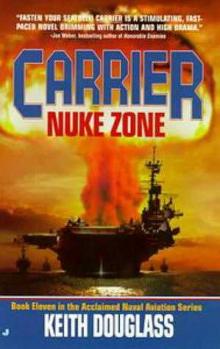 Nuke Zone c-11
Nuke Zone c-11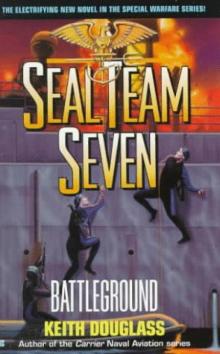 Seal Team Seven 6 - Battleground
Seal Team Seven 6 - Battleground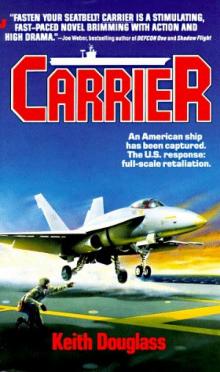 Carrier c-1
Carrier c-1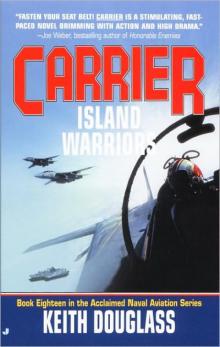 Island Warriors c-18
Island Warriors c-18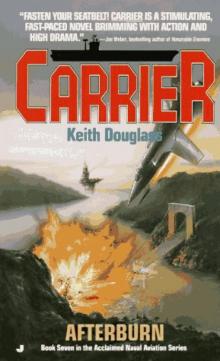 Afterburn c-7
Afterburn c-7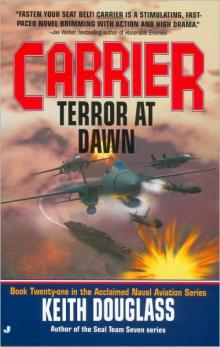 Terror At Dawn c-21
Terror At Dawn c-21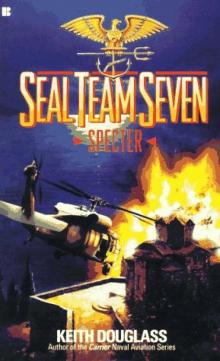 Specter sts-2
Specter sts-2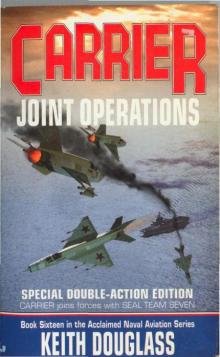 Joint Operations c-16
Joint Operations c-16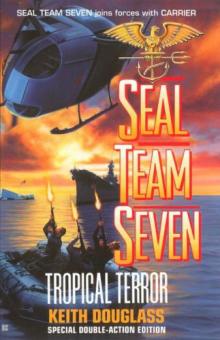 Tropical Terror sts-12
Tropical Terror sts-12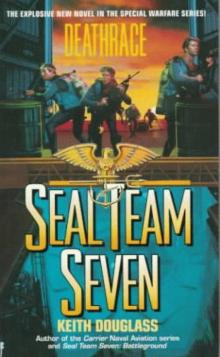 Seal Team Seven 7 - Deathrace
Seal Team Seven 7 - Deathrace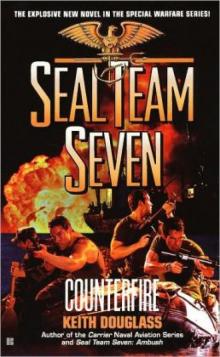 Counterfire sts-16
Counterfire sts-16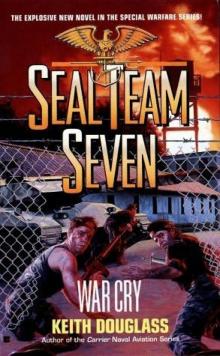 War Cry sts-9
War Cry sts-9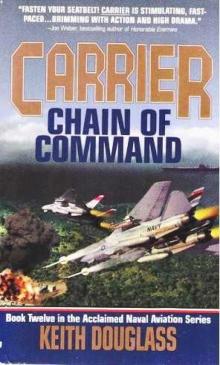 Chain of Command c-12
Chain of Command c-12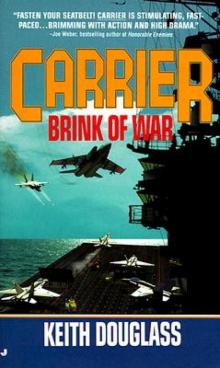 Brink of War c-13
Brink of War c-13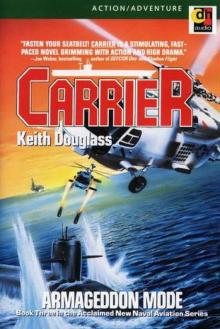 Armageddon Mode c-3
Armageddon Mode c-3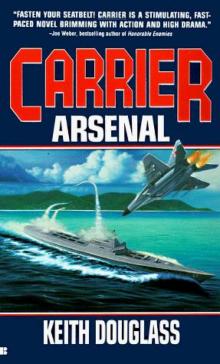 Arsenal c-10
Arsenal c-10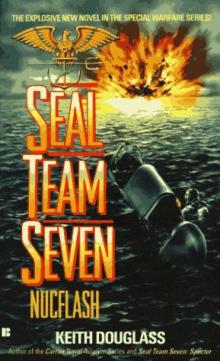 Nucflash sts-3
Nucflash sts-3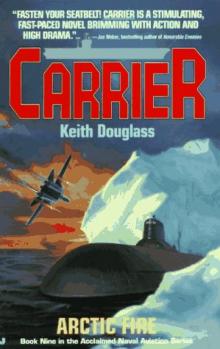 Arctic Fire c-9
Arctic Fire c-9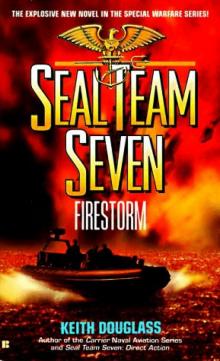 Firestorm sts-5
Firestorm sts-5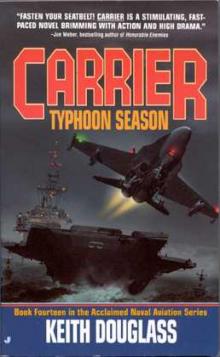 Typhoon Season c-14
Typhoon Season c-14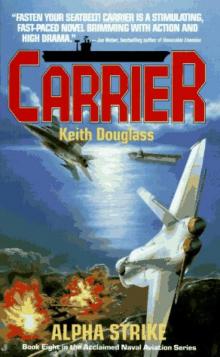 Alpha Strike c-8
Alpha Strike c-8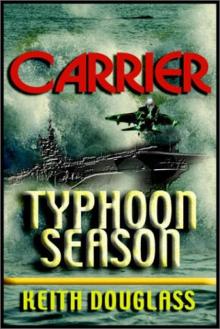 Carrier 14 - TYPHOON SEASON
Carrier 14 - TYPHOON SEASON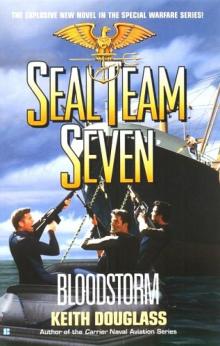 Bloodstorm sts-13
Bloodstorm sts-13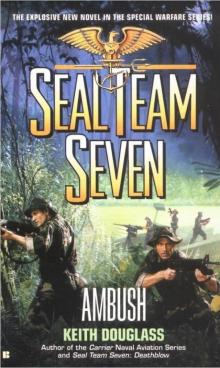 Ambush sts-15
Ambush sts-15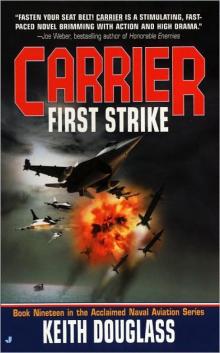 First Strike c-19
First Strike c-19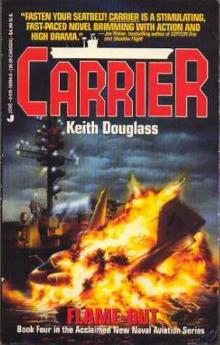 Flame Out c-4
Flame Out c-4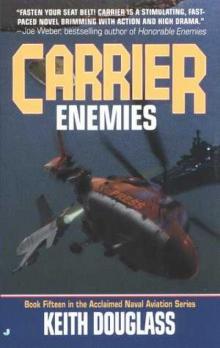 Enemies c-15
Enemies c-15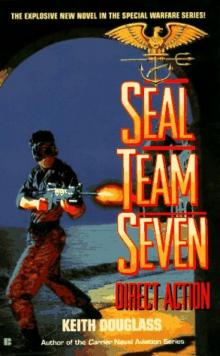 Seal Team Seven 04 - Direct Action
Seal Team Seven 04 - Direct Action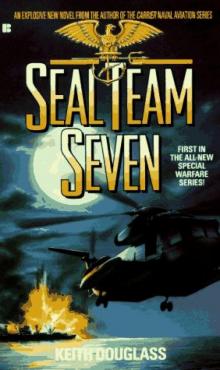 Seal Team Seven 01 - Seal Team Seven
Seal Team Seven 01 - Seal Team Seven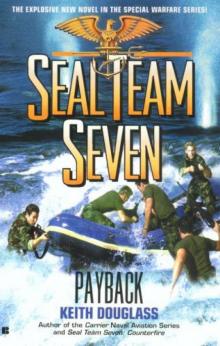 Payback sts-17
Payback sts-17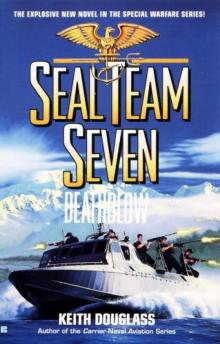 Death Blow sts-14
Death Blow sts-14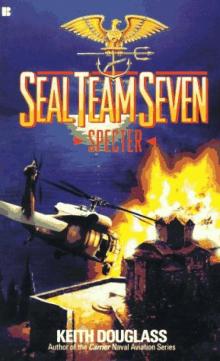 Seal Team Seven 02 - Spector
Seal Team Seven 02 - Spector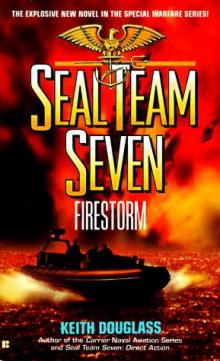 Seal Team Seven 5 - Firestorm
Seal Team Seven 5 - Firestorm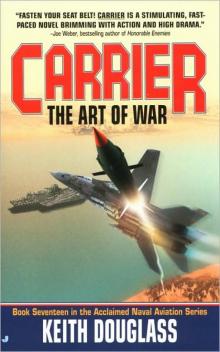 The Art of War c-17
The Art of War c-17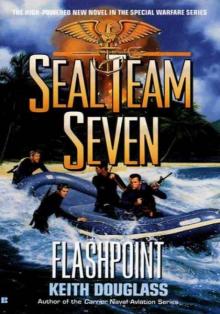 Flashpoint sts-11
Flashpoint sts-11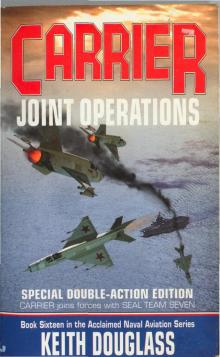 Carrier - Joint Operation Book 16
Carrier - Joint Operation Book 16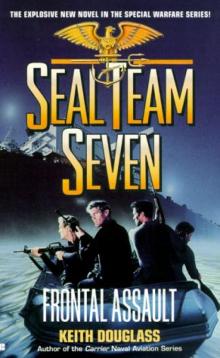 Frontal Assault sts-10
Frontal Assault sts-10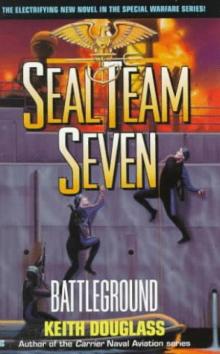 Battleground sts-6
Battleground sts-6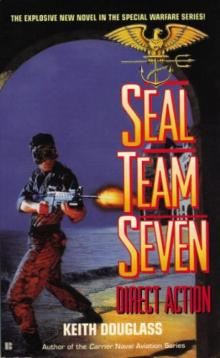 Direct Action sts-4
Direct Action sts-4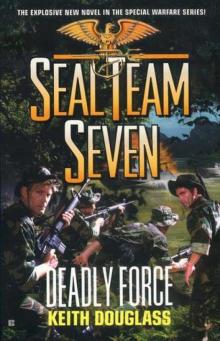 Deadly Force sts-18
Deadly Force sts-18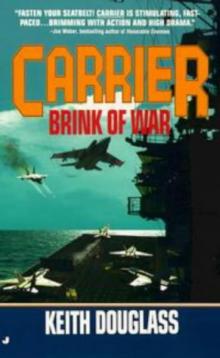 Carrier 13 - Brink of War
Carrier 13 - Brink of War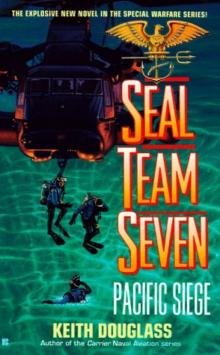 Pacific Siege sts-8
Pacific Siege sts-8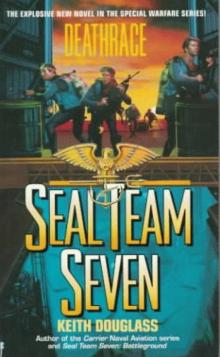 Deathrace sts-7
Deathrace sts-7